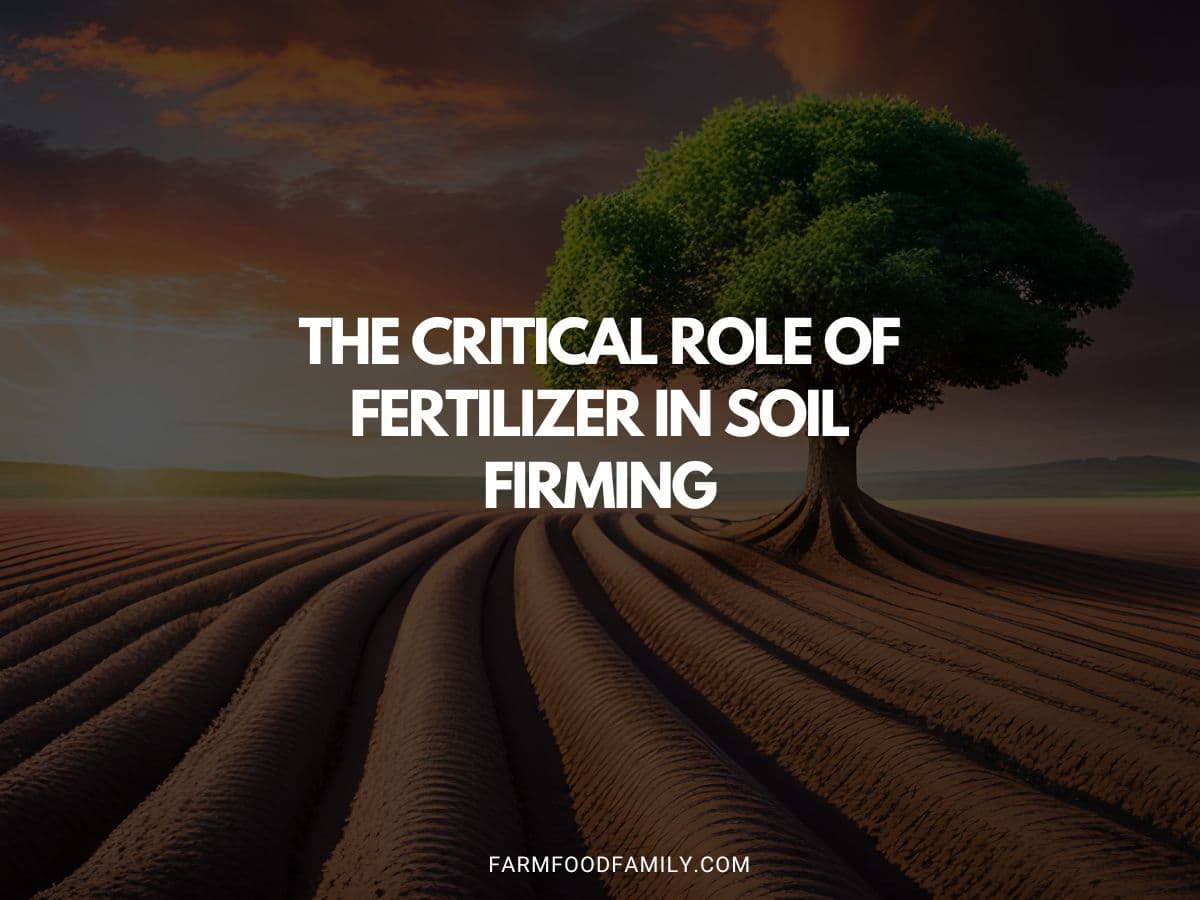The quality of your garden soil doesnt only determine the health and vitality of your plants.
It also plays a significant role in the overall aesthetic and functionality of your garden landscape.
One crucial aspect of soil quality thats often overlooked is soil structure or firmness.

When soil is too loose, it fails to provide sufficient support for plants.
Why Does Soil Firmness Matter?
Soil firmness is critical for several reasons.

A well-structured soil will retain enough moisture for plant use but will drain excess water to prevent waterlogging.
Fertilizers contribute essential nutrients that boost plant health, but they can also influence soil firmness.
They do this primarily by promoting soil biological activity.
The Role of Nitrogen
One nutrient thats particularly important for soil biological activity is nitrogen.
Nitrogen is a primary nutrient, meaning its one of the nutrients that plants need in the largest amounts.
However, nitrogen is also essential for soil organisms.
Many soil microbes, for example, require nitrogen to breakdown organic matter and carry out other metabolic processes.
Thus, a nitrogen fertilizer can enhance soil biological activity, which in turn can improve soil firmness.
In this context, a nitrogen liquid fertilizer can offer unique benefits.
As for soil firmness, nitrogen liquid fertilizer can indirectly contribute to this aspect.
As mentioned earlier, the nitrogen in the fertilizer fuels the activities of soil organisms.
These organisms help form soil aggregates, thereby enhancing soil structure.
Applying Your Fertilizer
Proper app is key to reaping the benefits ofnitrogen liquid fertilizer.
Its important to follow the manufacturers instructions regarding dosage and tool methods.
Different soils have varying capacities for nutrient retention and drainage, which can affect how your fertilizer works.
Clay soils, for instance, tend to hold onto nutrients but may drain poorly.
Sandy soils, on the other hand, drain well but can leach nutrients quickly.
Timing and Frequency of Fertilization
When and how often you fertilize can also affect your soil firmness.
The frequency of fertilization depends on the specific needs of your plants and the nutrient content of your soil.
Over-fertilization can lead to nutrient imbalances and potential environmental harm, so always fertilize judiciously.
It also feeds soil organisms over a longer period, complementing the quick nutrient boost provided by fertilizers.
Incorporating organic matter into your soil annually can help maintain good soil firmness and overall soil health.
In conclusion, soil firmness plays an essential role in supporting a healthy, thriving garden.
While fertilizers play a critical role, remember that achieving ideal soil firmness is a holistic process.